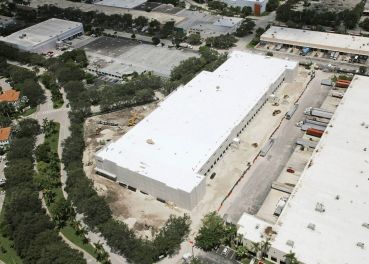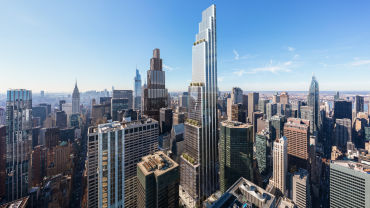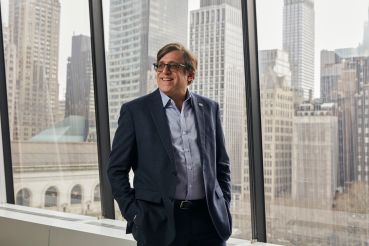After Occupy Wall Street, Big Real Estate Would Like to See More Restrictions on Private ‘Parks’
By Matt Chaban October 11, 2011 1:29 pm
reprints
Privately owned public spaces, or POPS, have been largely ignored by New Yorkers, even as they have reshaped the city over the past 50 years. Plazas, passageways and pocket parks have been carved out of giant new office and apartment buildings in exchange for considerable development bonuses (a few hundred thousand square feet here or there). This has led a band of urban activists to fight for awareness of and activity in POPS across the city.
Thanks to the occupation of Zuccotti Park, people have begun to take some notice of at least one such POPS, and the POPSters hope they can turn this into a new awareness of those spaces citywide. But the protests have also angered the landlords responsible for the spaces, and now they are preparing to fight back, possibly placing further restrictions on the city’s POPS.
“Obviously, there needs to be a balance,” Real Estate Board president Steven Spinola told The Commercial Observer. “Most of these places are told they need to be open 24 hours a day, which is why the cops are reluctant to push the protestors out. If you ask me, I don’t know what’s wrong with saying the plazas should close at 1 o’clock, so there’s an added degree of security or even maintenance.”
He echoed complaints made by Brookfield (BN) Properties, owners of Zuccotti Park, that the space the protestors have dubbed Liberty Square has become dirty and unsafe—which perhaps ignores the near constant police presence and the surprisingly organized efforts of the protestors to operate trash lines and recycling stations. Brookfield points out that the plaza has not been power washed since Sept. 16, the day before the protests began. Then again, when was the last time Central Park was power washed?
Mr. Spinola said his group, which represents many of the city’s most powerful developers and building managers, would consider pushing the Department of City Planning to create new rules for what they see as better regulation of the city’s POPS. One of the notable things about the events at Zuccotti Park was that the rules were indeed loosely defined, allowing the protesters and the police wide leeway in what activity took place there. Were it a city park, provisions against camping and even hours of operation would have been more obvious. Efforts to implement such restrictions retroactively have so far failed.
“It’s a serious issue,” Mr. Spinola said. “It’s open to the public, but it’s owned by a private company, and perhaps it’s better we balance those two sides.”
How easily new restrictions could be implemented is, like so many things concerning POPS, a little murky. Each of the 516 spaces has its own specific rules and regulations negotiated with the Department of City Planning at the time of the building’s inception. Theoretically, landlords could go back to the department and ask for changes to their POPS regulations where they see fit, but this would require a lengthy and costly public review. These are not uncommon, when a landlord wants to install a café or even a handicap ramp, but if there was a movement for change from most buildings in the city, it would create gridlock at City Planning.
There is the possibility that the department could institute a citywide amendment to the zoning code, the kind of thing the influential Real Estate Board could well lobby for. But the pushback from civil libertarians, parks advocates, community groups and the POPSters seems all but assured if that were the case. They frequently complain that the developers get more than they paid for with their POPS deals—are a few benches and trees really comparable to the millions in additional revenue that the extra stories on a building will eventually generate over time? –Matt Chaban


